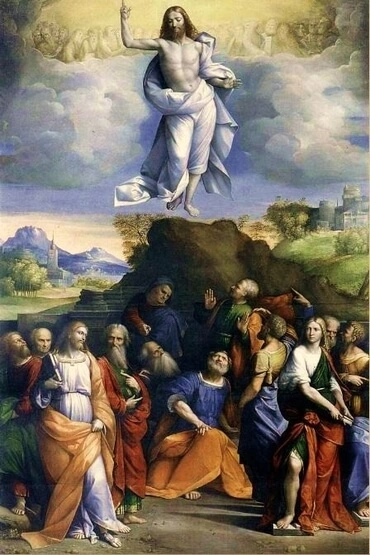Explanation of John 1:14
By Brian David

This is a key moment in this story. The beginning of John 1 explained that the Lord is perfect, infinite love which gave itself expression as divine truth. The duality of love and expression formed a template for humanity, which meant that the Lord’s duality made him the ultimate, divine human. It showed that the divine truth was the power of creation, and that the Lord shared that truth with humanity from the outset, so that people could receive His love and return it. But people kept turning away, and the Lord had to keep expressing his love in more and more external forms to maintain a connection.
By mentioning John the Baptist, the chapter showed that the Jews of the time still had the truth – the Lord’s Word – contained inside the rough-hewn images of the Old Testament. But they were so steeped in evil loves and false thinking that the connection to the Word – to the love within the Old Testament – was about to be snipped forever.
So the Word became flesh. The Lord passed the full expression of His love and His full humanity into physical flesh as Jesus. That way He could once again show the life within the existing Scriptures and could make His own life and His own words part of an expanded expression of truth for a new age of humanity. People could no longer see and feel the Lord’s love through the Old Testament, but they could see and feel it in the face and hands and words of Jesus.
The "glory" here expresses the blinding brilliance of that truth. The "Father" represents the Lord’s actual love itself, and being "begotten" means that the love was expressed in the form of truth. Being full of "truth" has a pretty obvious meaning, but "grace" means an affection, a love for what is true.
The Lord had to come. He had to let His humanity flow down into the flesh, into the most external of forms, because that was the only way we were going to see and embrace it.
(References: A Brief Explanation of the Teachings of the New Church 117; The Apocalypse Explained 1069 [3]; The Word 20; True Christian Religion 3, 85)
Apocalypse Revealed #584
584. 13:6 Then it opened its mouth in blasphemies against God and His name. This symbolizes their assertions, which are scandalous, against the Divine itself and the Lord's Divine humanity, and at the same time against everything that the church has from the Word by which the Lord is worshiped.
Its opening its mouth in blasphemies symbolizes assertions which are falsehoods. A mouth symbolizes doctrine, preaching and discourse (no. 452). Therefore to open the mouth means, symbolically, to utter those falsehoods. Blasphemies symbolize falsifications of the Word and more, as said in nos. 571, 582 above, here scandalous assertions as well, because the phrase follows, "against God and His name." God symbolizes the Lord's Divinity, as is the case often elsewhere in the book of Revelation. And His name symbolizes everything by which the Lord is worshiped, including the Word, because worship is conducted in accordance with it (no. 81).
That the name of Jehovah or of God symbolizes the Lord's Divine humanity and at the same time the Word, as well as everything by which He is worshiped, can become further seen from the following passages:
(Jesus said,) "Father, glorify Your name." Then a voice came from heaven, saying, "I have both glorified it and will glorify it again." (John 12:28)
(Jesus said,) "I have manifested Your name to... men... and I have made known to them Your name...." (John 17:6, 26)
Whatever you ask in My name, that I will do, that the Father may be glorified in the Son. If you ask anything in My name, I will do it. (John 14:13-14)
In the beginning was the Word, and the Word was with God, and the Word was God... As many as received Him, to them He gave the right to become children of God, to those who believe in His name... And the Word became flesh... (John 1:1, 12, 14)
(Jesus said,) ."..he who does not believe (in Him) is judged already, because he has not believed in the name of the only begotten Son of God. (John 3:18)
In the second commandment of the Decalogue, the name of Jehovah God that is not to be profaned, and in the Lord's Prayer, the name of the Father that is to be hallowed, have precisely this meaning.






